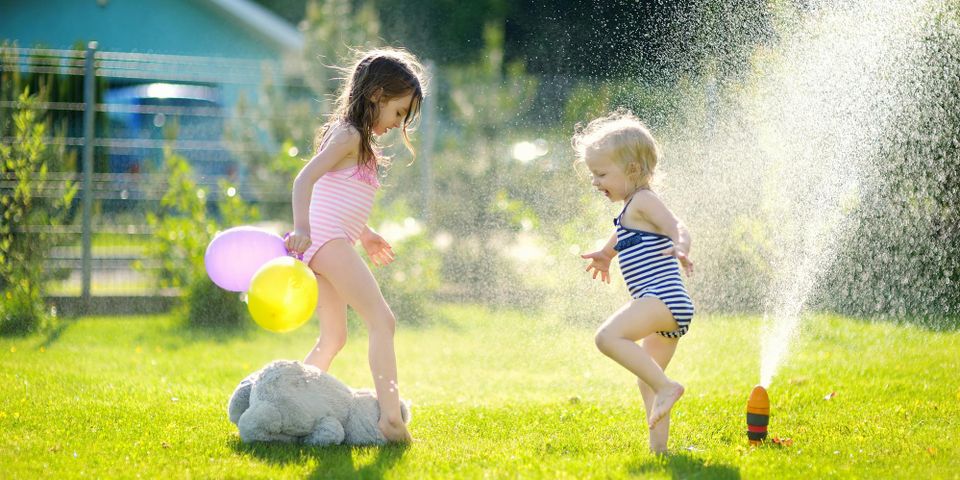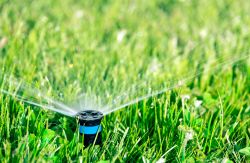
Both overwatering and underwatering your lawn result in unsightly grass. If you aren’t sure of the best way to maintain your lawn, proper irrigation is the best place to start. Below are several lawn irrigation tips that will help your grass look lush and full of life.
Common Questions About Lawn Irrigation
How much should I water my lawn, and how often?
Most lawns benefit from one to one and a half inches of water per week to stay healthy, which includes rainfall as well as manual or systematic hydration. During warmer times of the year, irrigate your lawn in the morning before 8 a.m., when it’s still relatively cool. This prevents water from getting absorbed too quickly by the sun’s heat. Water between 6 p.m. and 9 p.m. if morning irrigation is not an option. Watering during this time would be a secondary choice when it comes to optimal watering.
What about grass type?
 Warm-season grasses such as bermuda and zoysia require water throughout their growing seasons and thrive in humid weather around 80 degrees Fahrenheit. However, these grasses, along with centipedegrass and Saint Augustine grass, have deep root systems and therefore are better at withstanding periods of drought. Tall fescue also has a deep root system as well as the highest drought tolerance of cool-season grasses. Fescue, along with other cool-season grasses such as perennial ryegrass and Kentucky bluegrass, require regular watering during their growing periods but become dormant during droughts. However, watering or rain restores them.
Warm-season grasses such as bermuda and zoysia require water throughout their growing seasons and thrive in humid weather around 80 degrees Fahrenheit. However, these grasses, along with centipedegrass and Saint Augustine grass, have deep root systems and therefore are better at withstanding periods of drought. Tall fescue also has a deep root system as well as the highest drought tolerance of cool-season grasses. Fescue, along with other cool-season grasses such as perennial ryegrass and Kentucky bluegrass, require regular watering during their growing periods but become dormant during droughts. However, watering or rain restores them.
How can I tell if my lawn is sufficiently hydrated?
Check the soil using a long, thin metal rod — a longer screwdriver is perfect for this. If six to eight inches of the rod are wet when you pull it out, you don’t need to water your lawn further. Water your lawn at least twice a week. If you use a lawn irrigation system, place a plastic cup on the grass. When the cup is full, you can turn the system off. Another tactic is to multiply your yard’s square footage by 0.62 gallons, or 1 inch of liquid per square foot. The resulting number tells you how many minutes to leave the system on.
What Equipment Boosts Watering Efficiency?
Programmable smart lawn irrigation systems such as in-ground sprinklers don’t waste water because they shut off when the soil is sufficiently hydrated. You can also control them through smartphone apps, letting you make remote adjustments based in real time. Flow timers help by measuring flow by the hundreds of gallons. Your lawn’s size and shape further dictate the right irrigation system for your needs.
Discuss your needs with the team at The Sprinkler Connection to purchase a quality lawn irrigation system. Also specializing in backflow testing and sprinkler maintenance, this company has provided residents throughout Monroe County, NY and the surrounding areas with yard solutions for over 30 years. Call (585) 398-3960 today to schedule installation or learn more about their services online. Get more irrigation tips on Facebook.
About the Business
Have a question? Ask the experts!
Send your question

